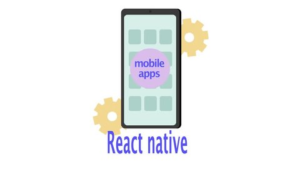Whenever the idea of an app comes to mind, the first question that comes to mind is whether to choose an Android or iOS technology stack. Which one should you aim for first? With the advent of cross-platform tools and frameworks, that question has taken a backseat. React Native and Flutter offer unique features that create a seamless development experience.
React Native is more than just a framework. It is like an anchor that attracts iOS and Android smartphone users. Many of you in the developer community know that this is a cross-platform app development tool. According to research reports, 38% to 42% of developers choose React Native to implement cross-platform apps. We have prepared this detailed blog post on the importance of React Native. Also, find out why developers choose React Native for mobile app development.
Top Reasons to Select the React Native for Mobile App Development:
Businesses that want to survive in the digital market need to evolve in line with the current developments. React Native can improve their operations by taking a future-oriented approach. Developers have been using it since 2015 and are impressed by its key features.
It has been 9 years since this great feature was added to React Native development. Apart from being an open-source tool, there are several reasons why more businesses are adopting React Native.
- Cross-Platform Accessibility:
This feature was mentioned at the beginning of this article. Developers no longer have to play a child’s game to make phone calls in their technology stack. React Native mobile app development is an easy choice. The accessibility of a single codebase allows you to target users on both iOS and Android platforms. It saves you time and extra development effort like other traditional approaches.
- Single Codebase:
If a business wants to reach out to users and establish a presence on both iOS and Android mobile app development devices, it needs to develop code for both platforms. React Native provides a single codebase to deploy apps on both platforms. Hiring a React Native developer allows you to address the features and challenges of both platforms through a single codebase.
- Native App-Like Experience:
As a cross-platform mobile app development method, React Native can provide a native app-like experience across multiple browsers. Apps built with React Native run perfectly on a variety of devices. You can navigate the interface seamlessly.
- Affordability and Simplicity:
React Native provides reusable components and elements that automatically reduce development costs across two different deployments. You also don’t need to hire and manage different development teams for Android and iOS apps.
It is a simple, one-line approach that focuses on JS, which plays a key role in designing the interactive interface of an app. Any developer familiar with the mechanics and concepts of JS can start the process with React Native. Businesses develop cost-effective, efficient, and user-centric apps with the help of React Native app development companies.
- Third-Party Plugins:
Developing something from scratch takes time, and effort, and increases your budget. That is why there is support for third-party plugins to shorten the development curve and minimize your budget. This allows developers to equip advanced features and web display capabilities to increase efficiency and productivity.
- Live Reloading:
Optimize your app’s functionality and performance with live reloading accessibility. You can update and initiate changes instantly. The auto-reloading feature makes it easy to manage bug fixes and errors in real time. Changes can be modified and reloaded automatically without wasting time and effort.
- Fast:
Instead of following WebView functionality rendered in a compiled code process, React Native provides rapid real-time development, startup, and maintenance, boosting performance levels. Improve your app’s performance with time-saving, smooth navigation, and animations.
It is a purpose-built mobile app development tool that significantly improves customer engagement, user experience, and revenue by making features accessible even in areas with poor networks. This specification recommends that modern developers choose React Native for mobile app development.
- Robust:
React Native has a suite to test the quality and performance of your app. Quality assurance is a critical phase of mobile app development and requires resources to test functionality. You can fix bugs and optimize your code before the final submission of your app and its release to the market.
Install NPM and continue with the development path. No additional effort is required to write a single line of code. Get access to reusable components to deploy bug-free apps. Moreover, it can handle high volumes of traffic and usage while sharing compatibility with a variety of technologies.
- Component-based approach:
React Native follows a component-based approach to form an interactive UX/UI. This allows you to start creating minimalistic and complex UI designs that are engaging and responsive. A component-based approach means splitting sections of code to provide different functionalities.
- One-way data binding:
UI components have specific data components. One-way data binding is provided to give you full control and reduce traffic. Any changes made in the code will not be reflected in the app code.
Despite all these features, React Native mobile app development does come with some challenges. Many newbie developers feel nervous while working with JS and need hours of practice before they can start creating interactive experiences with important events and functionalities. Documentation and manuals are provided that can be understood even by intermediate-level JS developers.
Implementing apps with complex functionalities using React Native is quite difficult because animations, motion, and clickable components need to be rendered to make the app interactive.

Use Case: React Native Mobile App Development:
Meta is a globally popular social media platform that launched React Native. Along with other major brands, Meta has created this amazing piece. You will be able to discover the essence of React Native. So, it is naturally powered by React Native. Apart from these two, React Native is also included in Walmart, Uber Eats, Zomato, Netflix, Discord, Bloomberg, etc.
Discord:
Discord first launched a React Native development project for iOS users. We then decided to equip it with React Native features like hot reloading, StoryBook, and compiled code to provide a seamless user experience to Android users. This was a major industry-wide shift and a smart move to expand access to a different audience base.
Uber Eats:
Uber Eats was first launched with a web dashboard. To attract mobile users, UberEats decided to adopt React Native for mobile app development and modernize its dashboard. We have seen good results by inheriting similar business logic without reflecting the changes in the dashboard. There is still room to extend accessibility and adapt it to the needs of your users.
Entrega.com:
Adopting React Native has made the process and flow of this app map smoother. Establish connections between native modules and plugins to optimize loading and memory.
Instagram:
There is already a native version of this app, but for better speed, performance, and user experience, it is worth integrating React Native as 80-90% of the code is the same and can efficiently deliver a great user experience.

Advantages of using React Native for Mobile App Development:
Develop complex and advanced mobile apps:
The React Native framework is beneficial for developers who want to launch complex and advanced mobile app solutions. This framework uses a component-based interface, allowing developers to easily connect and use interface elements to build great apps. The framework also helps to simplify complex algorithms into a simpler format, making them easier for developers to use.
React Native is open source:
React Native is an open-source framework, with free libraries and frameworks available to developers. React Native is under the MIT license. It also means that developers can benefit from existing libraries and tools that are compatible with the React Native framework.
Improved user interface:
This framework allows you to write code to manage execution. It is possible because it uses declarative syntax. The front-end UI library consists of pre-built declarative elements that make the interface intuitive and simple.
Reusable code:
By using the React Native framework, developers do not have to write different code for iOS and Android platforms. Use JavaScript that is compatible with both platforms. This unique code reuse feature increases efficiency and makes the app development process faster and easier. It also helps reduce costs. Moreover, the open-source user interface and libraries improve the app development process. Plus, if your organization is already building web apps with React, you can reuse that code to build new mobile apps.
Cheaper than native development:
When you use the React Native framework, you only need to design your app once in JavaScript. However, if you follow the native approach, you may need to build two separate apps from scratch for Android and iOS. React Native therefore allows you to reuse code and avoid the need to hire two different teams of developers. This saves the user twice the cost.
More flexibility:
React Native allows developers to access other developers’ code and pick up right where they left off. This increases team productivity and makes it easier for developers to modify and update smartphone apps.
Minimum resources required:
React Native is a framework that enables developers to build apps faster and more efficiently. There are already many components that can be used for different functions. This reduces the amount of work and time required to develop your app. Another advantage of React Native is that it allows you to build apps on multiple platforms including iOS and Android.
This feature allows developers to create one codebase for both platforms and allows users to access the same app on different devices. This makes your app more consistent and easier to operate and market.
Powerful User Interface:
Supports mobile app development with a scalable and reliable UI interface. Easy to use even for beginners that do not require training. Also, you can use tools to simplify your UI design. Create a bridge between UI components and native Java code.
Modular Architecture:
The best attribute of this tool is that it allows developers to design modules for different functions. Modules are sections of code that users can easily use and reuse across all kinds of apps that require the same functionality.
Minimal Manpower Requirements:
The React Native framework allows an app to work across different platforms. This feature makes life easier for organizations by eliminating the need to hire two separate teams for different platforms. You only need one team to develop the backend of your app.
However, some platform-specific features and tweaks may require a separate team. But overall, using React Native reduces the workforce required. It is much easier to manage because there are fewer people to manage it, and the features you can add to your app are similar to native features.
Combine with Native Code:
The React Native framework allows developers to build mobile apps that can integrate with existing native code and libraries. This way, you can take advantage of native development while using JavaScript. Many organizations are using this framework to improve user experience with faster and smoother apps that support 120Hz display rates and offer smoother animations and interactions.
Great Community Support:
One of the main reasons to choose the React Native framework is its wide community support. This platform is gaining popularity and helps in solving problems that may arise during the mobile app development process.
For example, if you are designing an Instagram clone and are retrieving attributes from your main app, you may not know how to apply an API or a plugin. In that case, the developer community will be of great help in overcoming the problem. However, many open-source contributors can help you better with app development.
Conclusion:
React Native mobile app development is an innovative and fast option for implementing interactive and intuitive apps. You can use a single codebase to deliver native and iOS-centric app experiences and grab the attention of both user bases. React Native has emerged as the mobile app development resource of the future that helps you establish your business brand with a unique approach.
Most app development companies use React Native in their technology stack to implement innovative solutions. Quokka Labs also uses modern approaches to cross-platform development, such as React Native.

FAQs:
Why do companies prefer React Native for mobile app development?
Launch cross-platform mobile apps with native app experience support and engage with diverse platform users with a single codebase. This reduces app development resources and costs and speeds up development time with simple, interactive, and user-centric UI/UX design. Therefore, companies tend to choose React Native.
Which companies are integrating React Native into their mobile apps?
Bloomberg, Meta, UberEats, Netflix, and Discord are integrating React Native to extend the functionality of their apps and deliver the same experience across all devices.
What to develop with React Native?
React Native caters to all domains/industries. You can leverage its features to customize applications for food delivery, e-commerce, social media, education, and more. Users can seamlessly access these applications across devices and browsers.
Is React Native a frontend or a backend?
React Native is a user interface tool used to build mobile applications. It handles the look and feel of your application. Other technologies are used for back-end tasks such as data management and server operations.
How can React Native mobile app development company services help your business?
React Native mobile app development company has a team of experienced and efficient developers who can create small and large-scale digital solutions that meet the expectations of our clients. They guide the development of futuristic and innovative applications.
Is it possible to migrate native applications to React Native?
It is possible to migrate and equip any application with React Native. This gives your application a modern touch and enhances its experience with a smooth flow. First, the scope of the project, user requirements, and level of complexity are determined, and then production begins.
